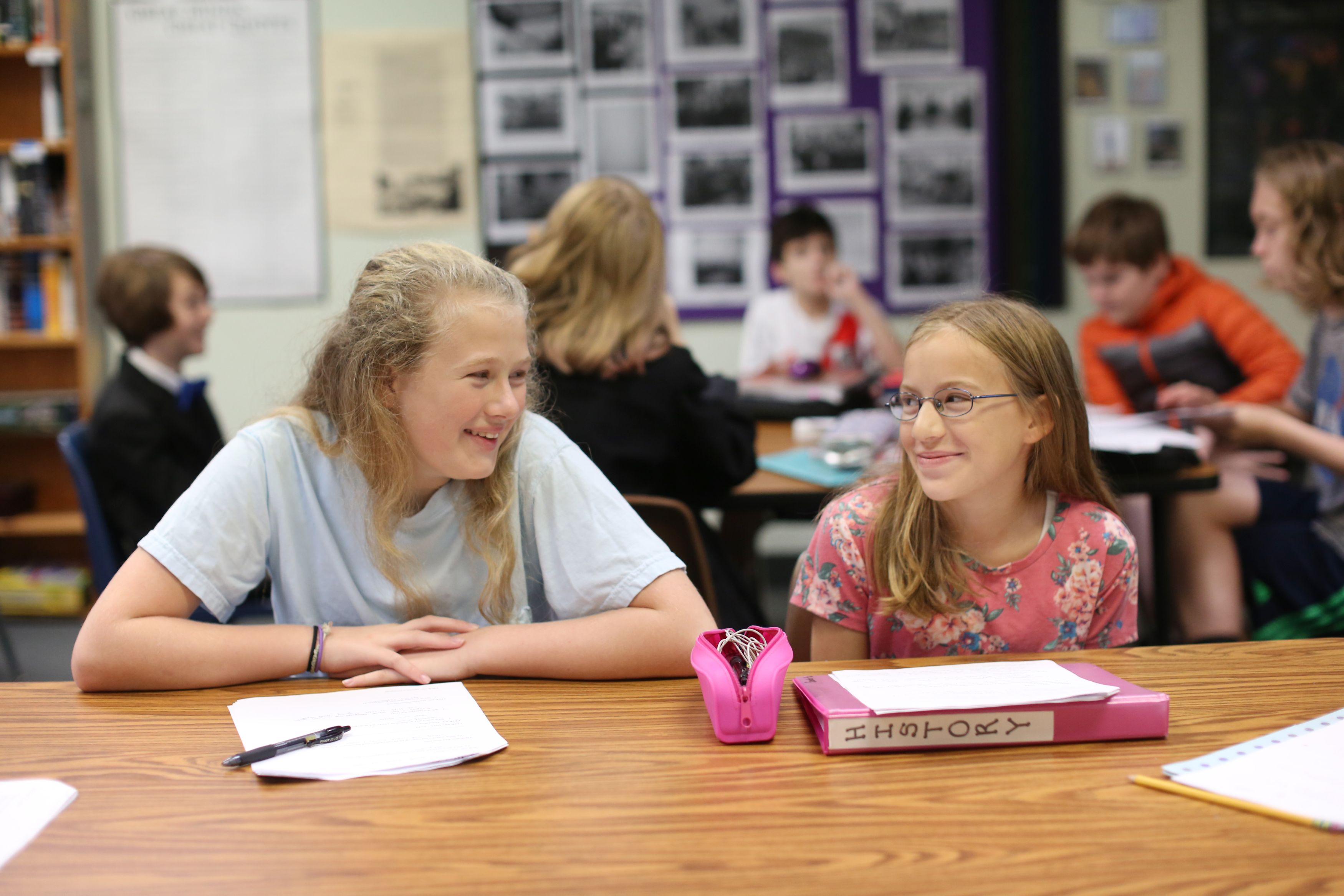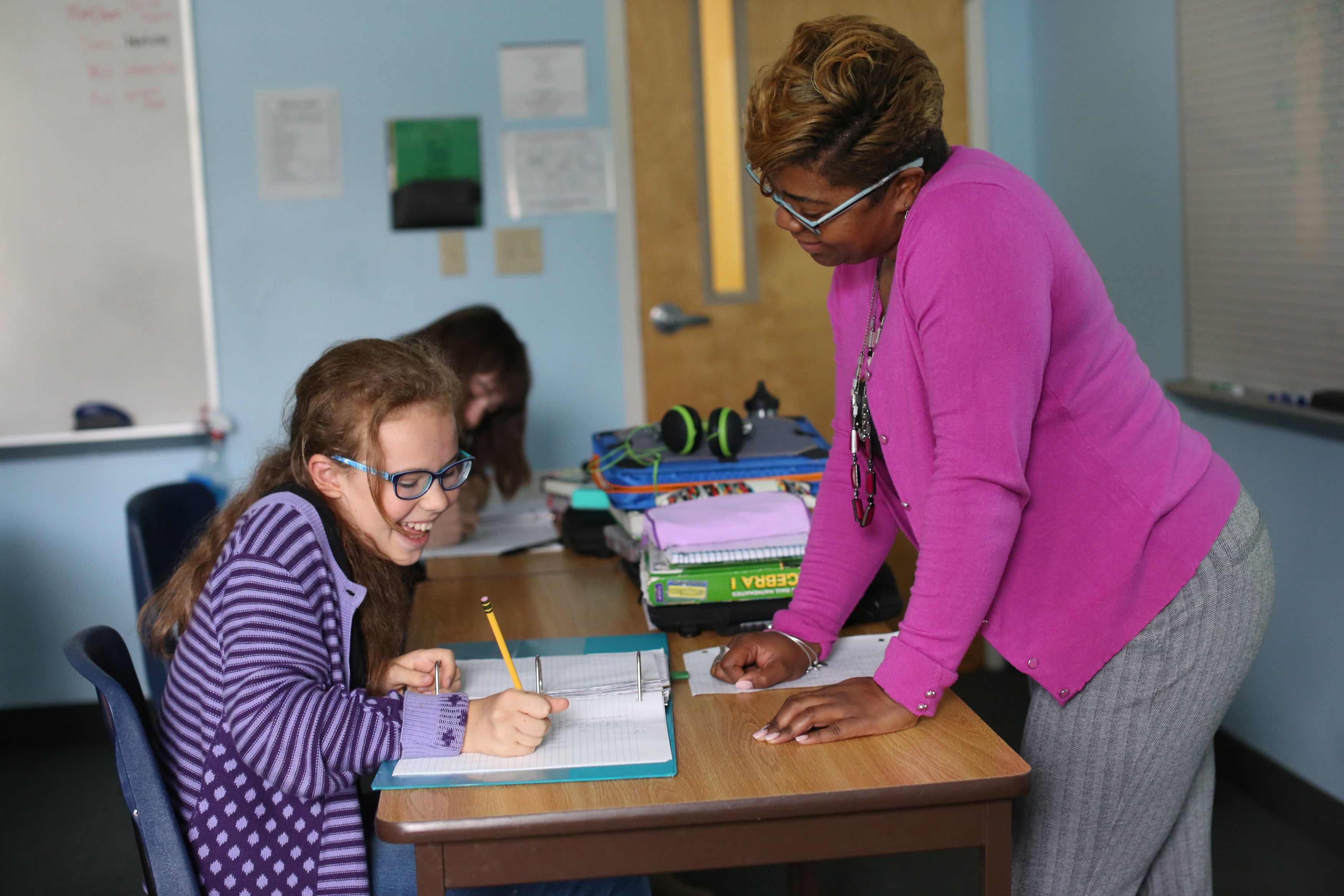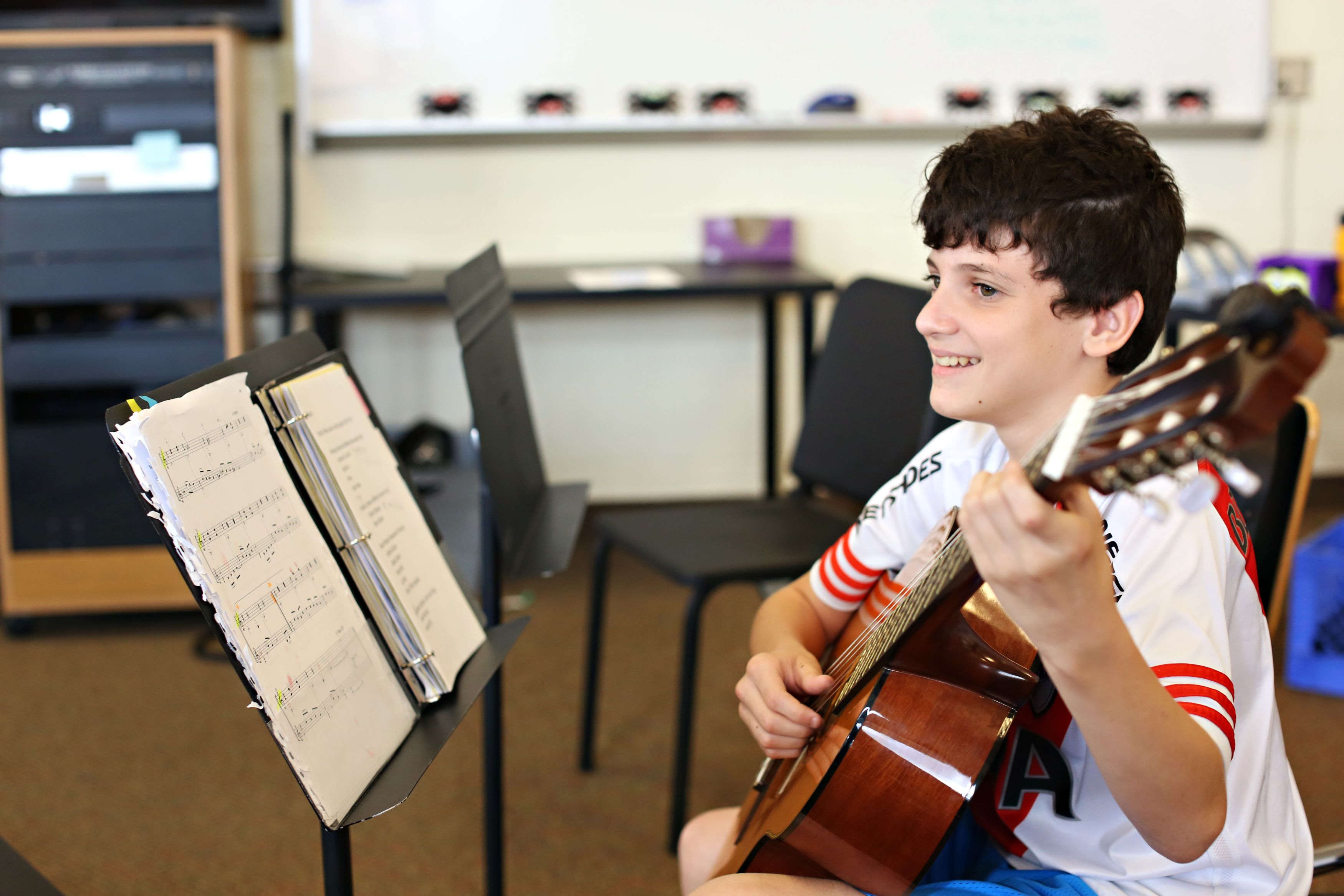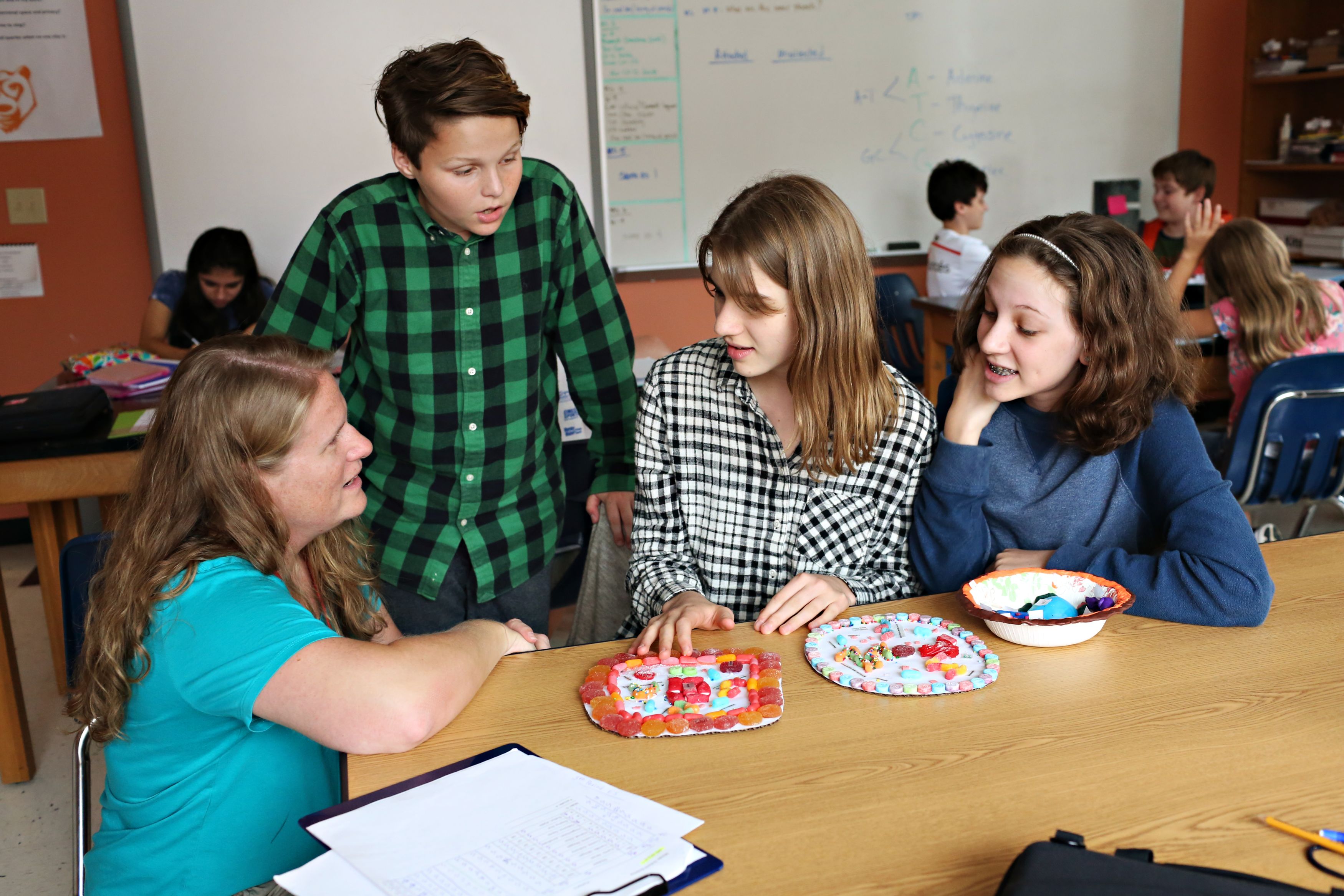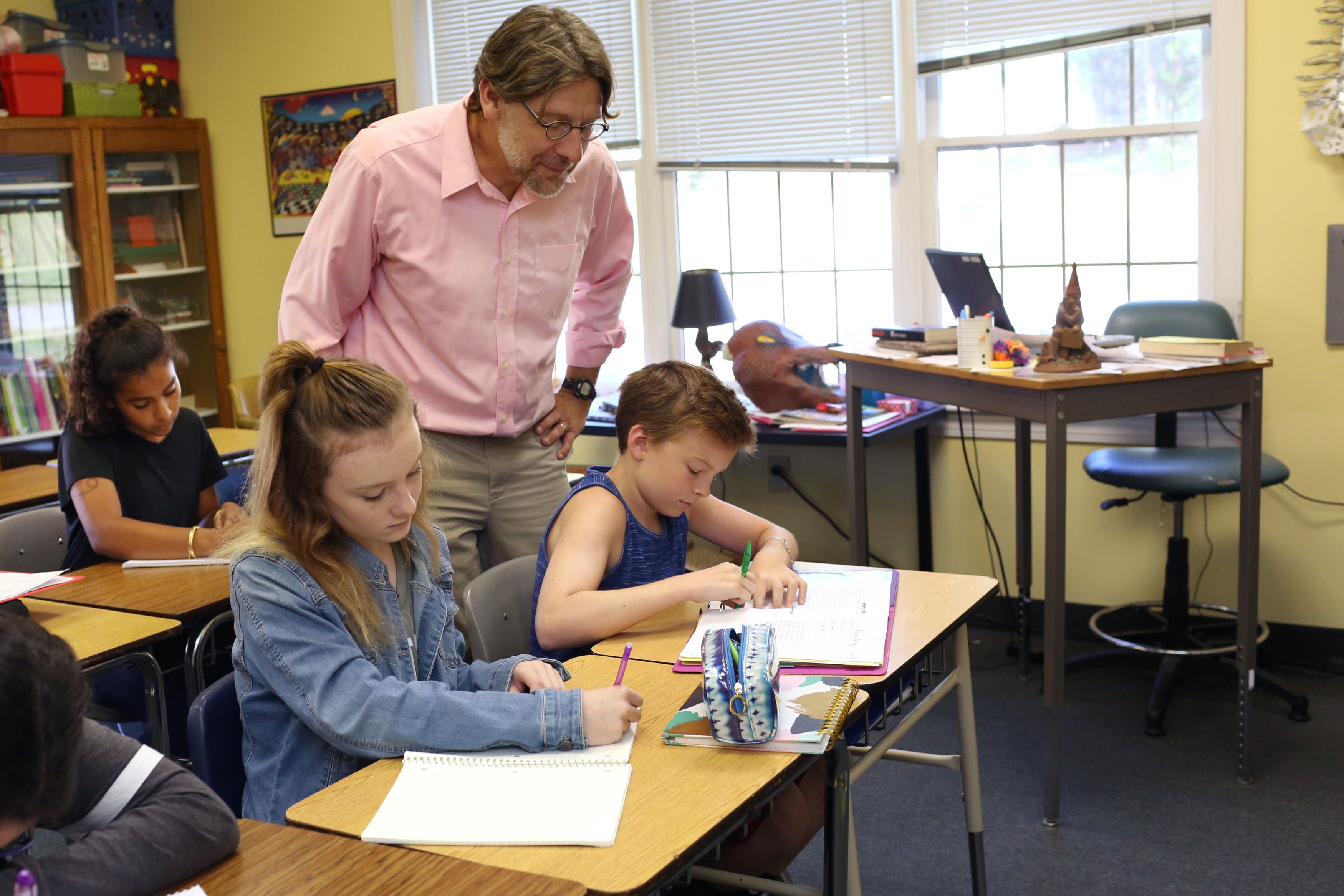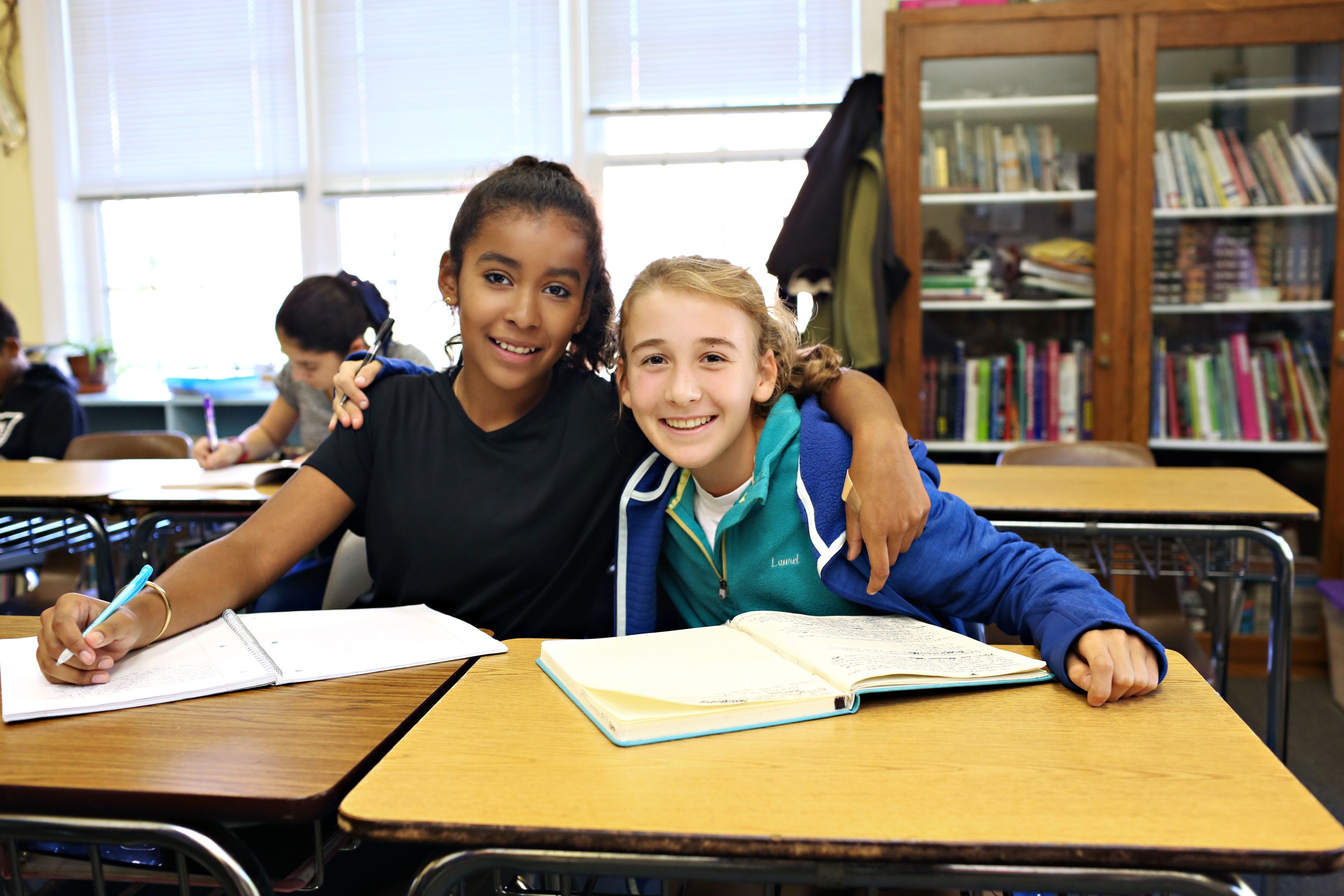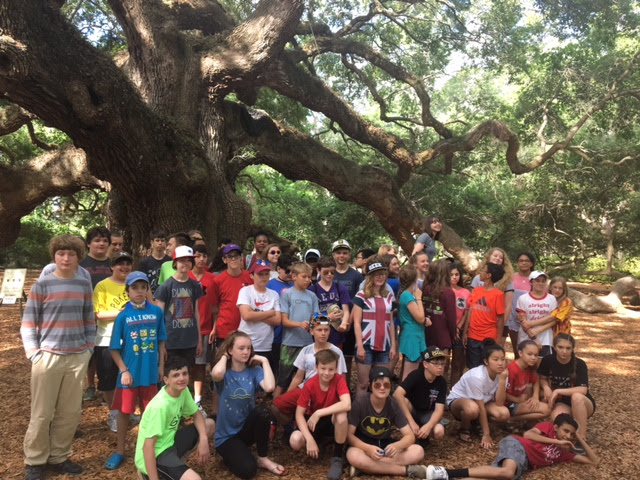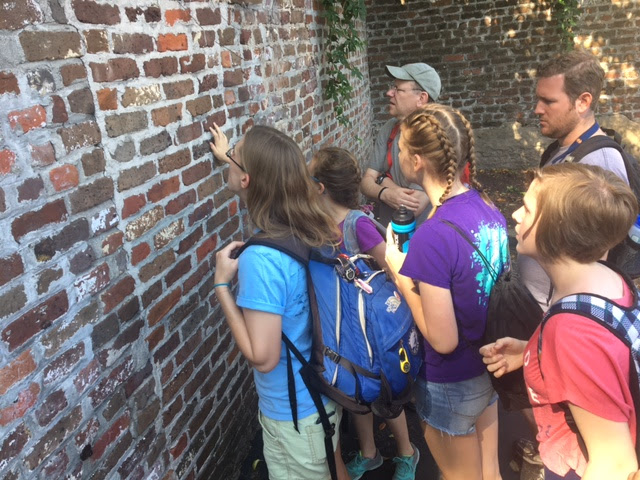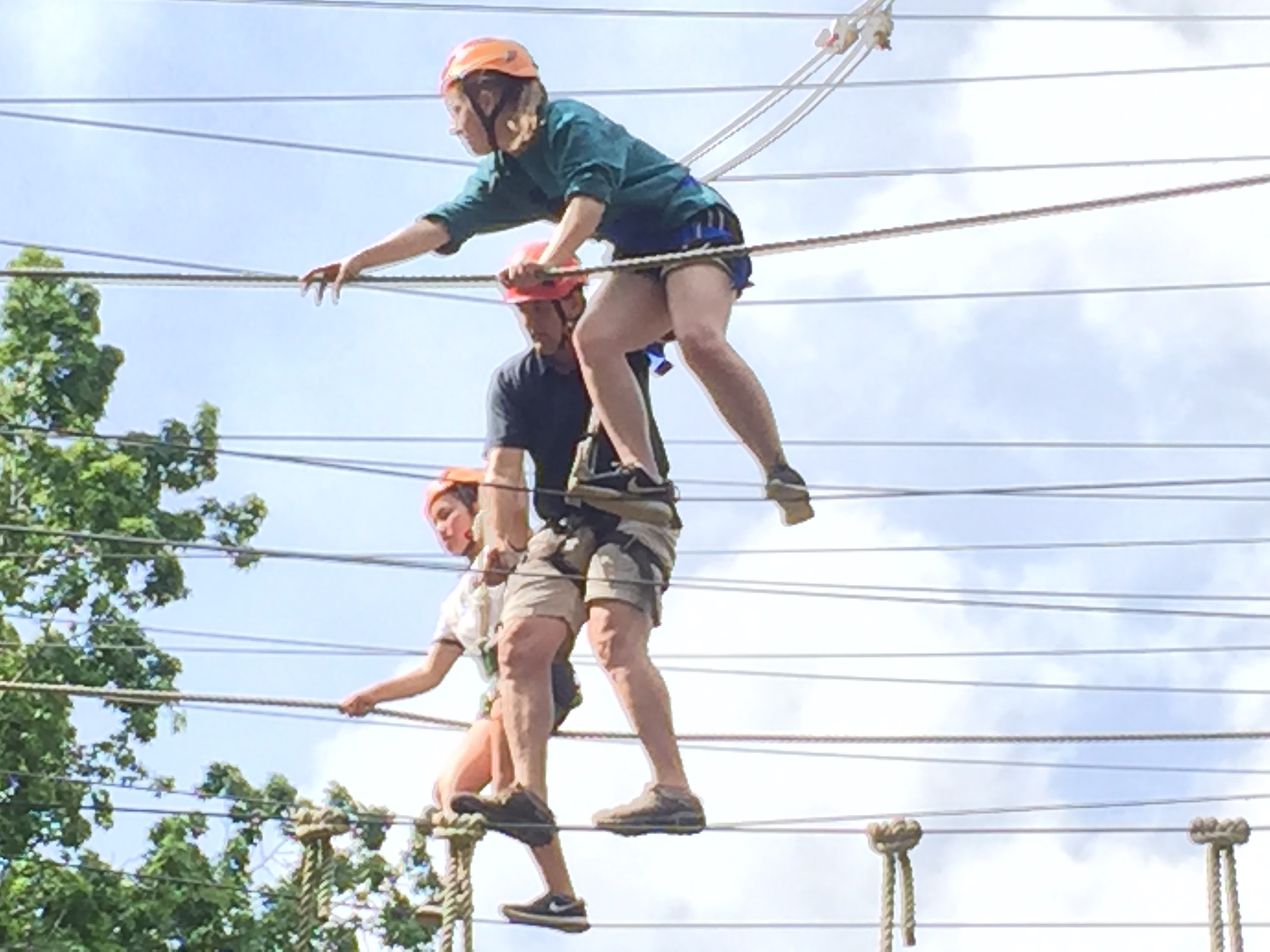Grades 7 and 8
Located at our Bob Page Campus, Middle School students are able to thrive in a supportive, inclusive environment while being part of a larger community.
COMMUNITY
Individuals and the Strength of Community
In Middle School, emphasizing community allows us to teach students to recognize the needs of a larger group before their own, at least for a few moments. We celebrate and nurture our differences as well as those things we have in common, and we recognize individual talents and whole-group accomplishments. MS students have the freedom to be who they are with all their quirks, varied interests, and crazy hats.
Students begin the year by challenging themselves to develop queries for their Middle School community. Queries are a series of questions that Quakers often use for reflection. As the students develop their ideas, they work through a collaborative, creative, (and sometimes loud) process. By the time they are through, they’ve laughed, they’ve been frustrated, they’ve complained, they’ve questioned, and they’ve celebrated. They have learned what it means to be a group and they are ready to reflect on how they affect those around them, what they give of themselves in our Middle School each day, and how they can be kinder, more thoughtful members of a community of learners.
ACADEMICS
Intellectual Risk-Taking and Learning Beyond the Classroom
The Middle School years are marked by gradual yet significant changes. Intellectually, students' reasoning skills improve and many are beginning to be able to think through problems without concrete events or examples. They are learning to distinguish fact from opinion, and are building the skills necessary to evaluate the credibility of information. As anyone who’s ever lived with someone this age knows, their debating and arguing skills vastly improve (and are often demonstrated, with considerable volume and passion). In these grades, it is developmentally appropriate for students to challenge the assumptions and solutions adults offer to them. At NGFS, we embrace this developmental stage and use the skepticism that often comes with it to fuel investigation and inquiry.
Brain research tells us that pathways are created and strengthened with less resistance if they are reinforced with a wide variety of stimuli, so learning in Middle School is frequently cross curricular. This provides opportunities for students to assimilate new information in a broader context. A novel read in Reading/Writing class is often related to the historical content being taught in Social Studies. Why travel to Birmingham, Alabama for a fall trip when studying civil rights? To visit the 16th Street Baptist Church, where the 1963 bombings occurred, and to visit the Birmingham Civil Rights Institute. Standing in the place where historic events occurred can be quite moving to Middle School students. We are often heartened to see their sometimes self-centered view expand, as they consider the impact history has had on their lives and the lives of their classmates.
Our goal is to bring students out into the world, not only to enhance their studies; it is critical for them to become aware of their obligations as responsible local and global citizens.
BUILDING INDEPENDENCE
Expecting Responsibility: Fall Trips and Spring Capstone Trips
Field trips are an integral component of the NGFS experience. Students are able to experience concepts and ideas first hand, and explore natural environments different from their own.
Trip Goals
- Build community, share experiences and get to know others in different ways: be part of a group 24/7, see your teachers and peers in a different light and in situations that you have not seen them in before.
- Provide opportunities for the growth of adaptability, flexibility, and being outside of your comfort zone — be it in sleeping in a tent, taking a shower in a bathhouse, or not having your favorite foods for dinner.
- Help organize and problem solve by helping with planning, logistics, and the work of the trip.
- Make learning come alive by visiting places such as the 16th Street Baptist Church in Birmingham and the Holocaust Museum in Washington, DC.
- Participate in Service Learning in a community you are visiting.


